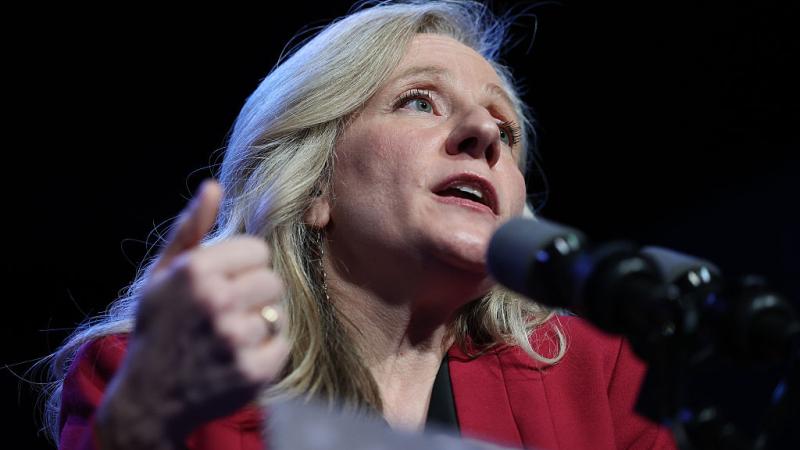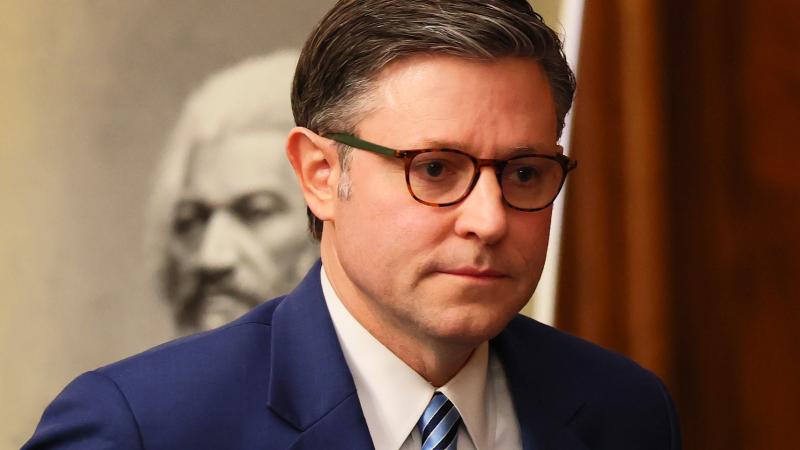Former DC National Guard officials criticize Pentagon leadership in assessment of J6 response
Four former D.C. National Guard officials testified in Congress Wednesday and detailed their firsthand experience of the January 6 riot.
Four former D.C. National Guard officials turned whistleblowers excoriated military leadership for their response to the January 6 riot at a hearing held by the House Administration Subcommittee on Oversight Wednesday.
Based their firsthand accounts, they said that senior leadership failed to act decisively to authorize the deployment of the D.C. National Guard to the Capitol and subsequently crafted a misleading narrative about their actions that day to paper over the delays.
“These whistleblowers are coming forward today to share, for the first time under oath, their first hand account related to National Guard deployment on January 6," said Chairman Barry Loudermilk, R-Ga., in his opening statement.
“None of today’s whistleblowers were interviewed under oath by the Department of Defense Inspector General or the Select Committee," he added, highlighting what he believes is evidence of a lack of a truly thorough investigation into the events of that transpired that day.
Loudermilk is leading his subcommittee's investigation into the government's response to the January 6 riot, including by the National Guard and the U.S. Capitol Police.
The hearing included four witnesses who served in various roles with the D.C. National Guard during the January 6 riot:
- Colonel Earl Matthews - Chief Legal Advisor, D.C. Army National Guard
- Command Sergeant Major Michael Brooks - Senior Enlisted Officer, D.C. Army National Guard
- Captain Timothy Nick - Aide-de-camp, D.C. Army National Guard
- Brigadier General Aaron Dean - Adjutant General, D.C. Army National Guard
"I'm not here to disparage the army that I love and serve nearly three decades, but to correct the record and speak for the hundreds of enlisted soldiers and airmen of the DC National Guard who have always answered the call to serve without political bias or prejudice," Command Sergeant Major Michael Brooks, who served as Senior Enlisted Officer, D.C. Army National Guard on January 6.
"We've always faithfully fulfill their oath to support and defend the Constitution of the United States against all enemies, foreign and domestic," he added.
In his opening statement, Brooks criticized a Department of Defense Inspector General report that determined the military responded appropriately to the riot at the Capitol and that no officials delayed or obstructed the department’s response.
Brooks said investigators failed to interview him or other critical witnesses with firsthand knowledge of what occurred that day. On January 6, Brooks reported directly to Major General General William J. Walker, the commanding general of the D.C. National Guard that day.
Brooks relayed in an earlier transcribed interview with the subcommittee that military leaders were particularly concerned with the “optics” of deploying the D.C. National Guard to the Capitol and instead wished to use the guardsmen to replace D.C. Metropolitan Police Officers.
“In my opinion, it was a senseless recommendation, the logistics and the amount of time it would have taken to replace individual MPD officers across the city, you’re taking away too much time and we’re getting further delayed,” Brooks said.
Both Brigadier General Aaron Dean, now retired, and Captain Timothy Nick, who now serves in the Florida National Guard, confirmed Brooks’ assessment and recalled hearing senior military officials concerns about the "optics" of deploying the guard to the Capitol, causing delays.
Colonel Earl Matthews, who served as the Chief Legal Advisor for the D.C. Army National Guard on January 6, told the committee he believes senior Pentagon leadership lied to Congress and mislead investigators about what actually happened that day.
"I'm here today because to senior general officers of the United States Army General Charles A. Flynn and Lieutenant General Walter E Piatt have acted contrary to [army] values. Generals Piatt and Flynn have lied to Congress, to federal investigators and to the American people about why it took so long for the District of Columbia National Guard to the US Capitol on January 6 2021," Matthews asserted.
"Their distortions contributed to a deeply flawed…a deeply and fundamentally flawed Department of Defense inspector general investigation and to deficiencies in other official inquiries," he added.
Both Flynn and Piatt could not be reached for comment.
The Department of Defense pointed Just the News to the Inspector General report which was broadly criticized by the witnesses. That report concluded the Defense Department’s actions to respond to the riot on January 6 “were appropriate, supported by requirements, consistent with the DoD’s roles and responsibilities…and compliant with laws, regulations, and other applicable guidance.”
In December 2021, Matthews sent a 36-page memo to the January 6 Select Committee making the same claims about these senior Pentagon officials.
In one instance, Matthews described in his memo to the committee that Piatt and Flynn both were concerned about the optics of deploying the National Guard to the Capitol after then-Chief of the U.S. Capitol Police Steven Sund urged them to the deploy the force after the building perimeter was breached.
“LTG Piatt stated that it would not be his best military advice to recommend to the Secretary of the Army that the D.C. National Guard be allowed to deploy to the Capitol at that time. LTG Piatt stated that the presence of uniformed military personnel could inflame the situation and that the police were best suited to handle the situation. Both LTGs Piatt and Flynn stated that the optics of having uniformed military personnel deployed to the U.S. Capitol would not be good,” Matthews recounted of a phone call between the military officials.
In response to previous congressional inquiries, Piatt said “At no point on January 6 did I tell anyone that the D.C. National Guard should not deploy directly to he Capitol.”
Flynn told investigators he “never expressed a concern about the visuals, image, or public perception of” sending the National Guard to the Capitol.














